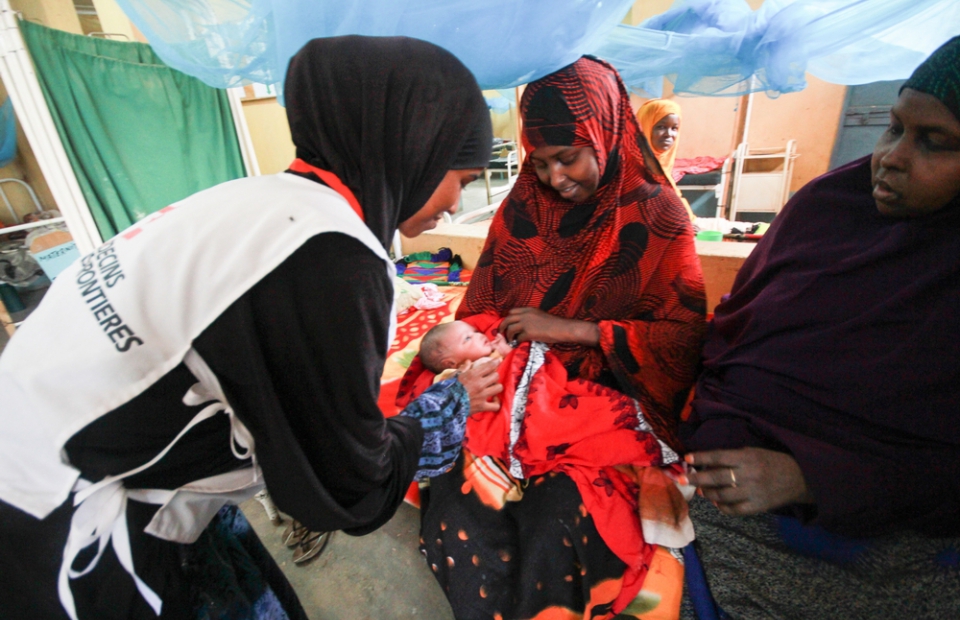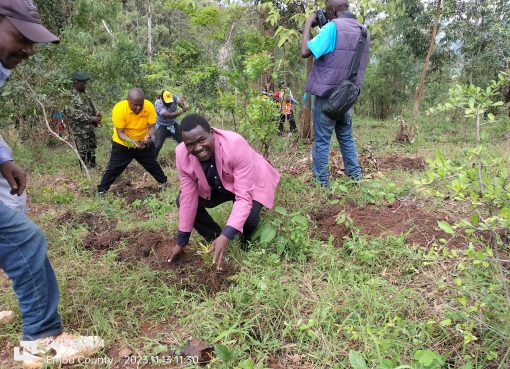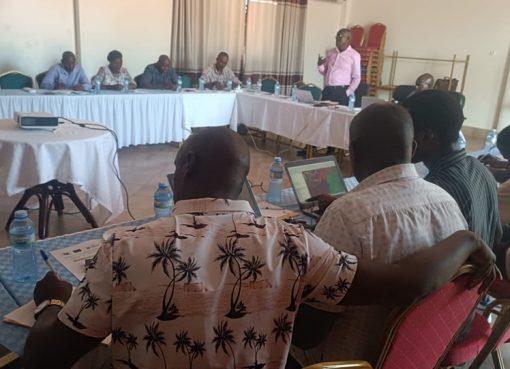At least 13 people have died of cholera since the onset of the current long rains in the country
Health Cabinet Secretary Mutahi Kagwe has confirmed.
He said twelve of the fatalities were reported in Marsabit County while the last one occured in Turkana county where heavy rains occasioned by floods were witnessed in recent times.
The CS attributed the outbreak to poor sanitation after floods that filled up the pit latrines contaminated all water points thereby exposing residents in the affected areas to waterborne disaeses.
Giving a medical landscape in the country while also issuing the country’s position on Covid 19 situation in the country, the CS the cholera outbreak started off in Garissa and gradually made its way through three counties namely Wajir , Turkana and Muranga before being reported in Marsabit last Month on April 24th .
“Although the government is focused mainly on Covid -19 outbreaks, it is important to address disease outbreaks since Covid affects more so those with comprised immune systems and those with underlying conditions”, he said.
He explained that public health teams from the local county governments and the Ministry of Health are working to control reported 550 cases, out of which 268 are in Marsabit and 222 in Turkana.
Regrettably he noted that most of the cases, 40 percent, and sadly, 70 percent of the deaths to that occurred have been among children aged 10 years and below.
The other reported cases in Garissa (48), Wajir (4) and Muranga (8) have all been controlled, Kagwe added saying that the Ministry is working closely with the County Governments of Marsabit, and Turkana, and hope to have fully contained the situation over the next two weeks.
“We believe that this is feasible, given the fact that the outbreak is currently localized to only two areas, which is Marsabit and Turkana”, he said.
As it relates to COVID-19, the CS noted that they are noticing some interesting trends developing globally.
As the virus continues to spread, he said that the infected persons are increasingly exhibiting new, less typical, non-respiratory symptoms, such as sudden strokes in young people and a multi system inflammatory symptoms, with features similar to those of Kawasaki Disease and toxic shock syndrome in children.

These cases however he added have largely been confined to the United Kingdom, France, Italy, Spain and the United States, and have so far not been seen in Kenya.
“We nonetheless need to be cognizant of them, because in each of these cases tested for antibodies, the results were positive, which indicate that the patients had been exposed to COVID-19”, he said.
Beyond this, CS Kagwe noted that there is a growing number of patients exhibiting non-typical flu-like symptoms, such as gastro intestinal distress syndrome that leads to loss of appetite, nausea, vomiting, diarrhea, delirium and chickenpox like lesions.
“Over the past two weeks, we have increased our testing capacity by about 40 per cent, and we intend to continue with this escalation. I would therefore, like to encourage you, the public and our medics to be alive to these symptoms”, he said.
Kagwe explained that there are several countries experiencing a re-emergence of COVID-19 after they had successfully contained it naming Lebanon, Iran, South Korea, Germany, China and even Ghana, as some of countries that had been hailed as global success stories but are again enforcing restrictions for this reason.
“I therefore urge Kenyans to keep the social distancing requirement, isolation and wearing of masks guidelines that the Ministry of Health has issued. This is to ensure we succeed in containing the disease without erasing our gains.
Further, Kagwe explained that patients can indeed suffer infections more than once because the virus can re-occur between 30 to 50 days after initial recovery. “It has been found that this happens only in patients with compromised immune systems, which is why we should again be aware of these developments”, the CS said.
By Wangari Ndirangu





